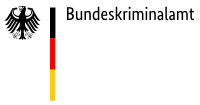Central CID Services and search unit
The division Central CID Services ans searches includes a broad variety of tasks such as the permanent crime unit, the identification service and the mobile task force on federal level as well as the search unit of the BKA.
The permanent crime unit guarantees a 24/7 availability to gather and assess national and international incoming messages and reports. In case further pieces of information exist in databases of the BKA, these can be added to the process and directly transferred to the officer in charge.
The Tactical Reporting Centre and the permanent crime unit often form the first point of contact for the police forces of the Federation, the federal states, foreign police services or Customs and other law-enforcement authorities. Besides, initial measures are also taken outside regular working hours, operational forces are alerted or other security services are notified of important matters.
The Interpol-network directly links the police agencies of 188 states. The Bundeskriminalamt represents the National Central Bureau for the International Criminal Police Organisation (ICPO, Interpol), as "Interpol Wiesbaden"
. In this function, the BKA for example exchanges information due to international searches and initiates all necessary measures to trace a person whilst closely cooperating with the national or international police and law agency in charge.
The national and international exchange of information regarding searches in the Schengen Information System (SIS), the European network for searches for persons and property, is routed by the Division ZI, SIRENE Germany (Supplementary Information Request at the National Entry), on behalf of the entire German police to local police forces or abroad.

Additionally, the identification of persons forms an essential task of the Central CID services. This includes the identification of offenders as well as victims. Therefore, this process is supported by the personal data collections of the Bundeskriminalamt held in Division ZD. The central part is the extensive criminal records collection, supplemented by the central photograph collection. Furthermore, physical descriptions of persons are available.
The fingerprints of 3.27 million people and approximately 1.1 million palm prints are stored in the electronic database (AFIS; Automated Fingerprint Identification System). AFIS often manages to identify an offender, even if only parts of a fingerprint or palm print are found at a crime scene.
Since the beginning of 2006, it is possible to identify persons even from a patrol car using a Fast-ID fingerprint identification system. In this process, only a single finger is scanned. The generated fingerprint can be automatically researched in the entire AFIS database. In case of a hit, the system responds in 3-5 minutes; in case no match is found, it takes about 1-3 minutes.
Besides AFIS, significant success can be registered due to the DNA-analysis-database which was installed at the BKA in 1998.
These databases do not only convict suspects. Innocent people are cleared of suspicion and citizens can be protected from reoffenders. Additionally there has been further improvement in the exchange of data on an international level due to the "Treaty of Prüm"
. The treaty was signed in May 2005 between Austria, The Netherlands, Belgium, Luxembourg, France Spain and Germany. It aims to ensure a supranational criminal prosecution. The treaty offers possibilities for exchanging and searching data such as fingerprints, DNA and motor vehicle data in the databases of the member states.
Also installed in Division ZI is the Search Service Centre (public-assisted searches, general search matters, steering of search measures). Measures are taken here for the international search for persons with a view to extradition and in cases of parental child abduction, basic principles of general searches are developed and public-assisted searches are coordinated. For the targeted, particularly intensive search for individual criminals wanted for arrest, the BKA deploys the search experts of the Fugitive Search Unit.

